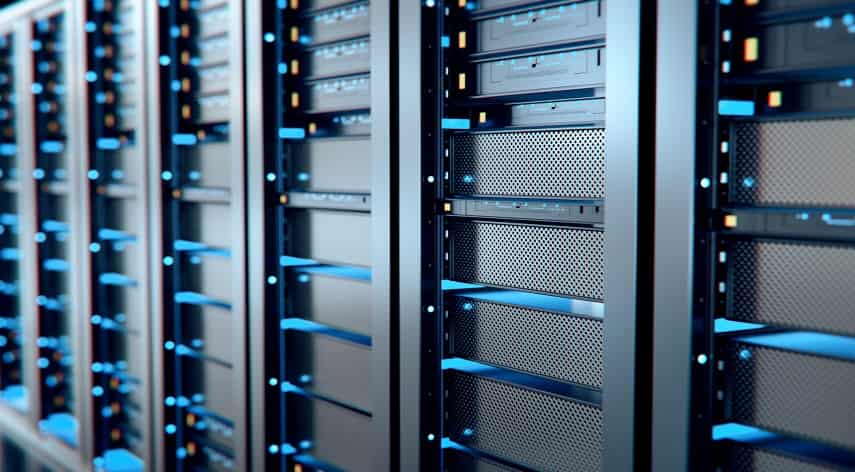Physical Server vs Virtual Server: What Are the Differences?

Up to 60% of corporate data worldwide exists on cloud servers. Though the cloud’s popularity has expanded, physical servers are still a key component of enterprise computing infrastructure.
Knowing the different use cases of a physical server vs a virtual server will help you streamline content management and scheduling operations. This virtual and physical server guide will review the most critical aspects of both types of servers and which is better suited to your business.
Table of Contents
ToggleWhat is a Physical Server?
A physical server is an essential part of modern IT infrastructure. It is a computer designed to manage network resources, run applications and provide services to many users. Thus, physical servers provide computing power and access to all users across a network.
Often, physical servers are on-site in a data center at the company.
They have computing capabilities that include:
- Storing and running applications
- Hosting websites
- Managing databases
- Processing transactions
- Handling complex tasks that require a lot of computing power
Physical servers also streamline operations and automate tasks, saving IT departments time and money. They have many benefits, such as reliability, scalability, and performance.
Additionally, businesses can customize them to meet the needs of any organization. But, physical constraints limit them since they require significant hardware and maintenance investments.
What is a Virtual Server?
Virtual servers have become popular as an alternative to physical servers in recent years. Other terms that people often use for virtual servers are web-based or cloud-based servers. A virtual server is a piece of software that emulates the functions of a physical server.
It allows users to access and store data on virtualized machines instead of traditional physical hardware. Many users can access the same virtual server at the same time, making it more efficient and cost-effective.
Virtual Server Benefits
Virtual servers offer scalability, improved performance, and lower capital costs. They also allow for rapid deployment and faster resource allocation, making them well-suited for businesses with changing needs.
When considering a physical or virtual server, several key differences exist. This virtual server guide is excellent for learning in-depth information on virtual server capabilities.
Physical Server VS Virtual Server: What’s Right For You?
When comparing a physical server vs a virtual server, there are many factors to consider. Most of your decision will rely on your business’s needs, budget, and space.
For example, a physical server might be ideal if you need reliable computing power. However, it will become tedious if you don’t have the space or IT budget to maintain a physical server. Instead, you might opt for a virtual server.
Of course, you don’t always have to choose between the two. Many businesses prefer a hybrid solution to their computing needs. They keep a physical server for a reliable network and virtual servers for niche services.
Read More About Business and Technology Today
The physical server vs virtual server decision is unique for everyone. What’s important is using tech to optimize your business. These days, business and technology go hand-in-hand.
Staying up to date on the latest tech releases can help your business soar. Read our other articles to learn more!
Jeff Bailey is a tech enthusiast and gadget guru with a profound understanding of the ever-evolving world of technology. With a keen eye for innovation and a passion for staying ahead of the curve, Jeff brings insightful perspectives on the latest gadgets and tech trends.
Recommended For You
Spread the loveInstagram is a visually driven platform, and understanding how aspect ratios work can significantly impact the success of
Spread the loveHave you ever received a call from an unknown number, and upon searching online, found nothing but dead
Spread the loveOverview of U231748506 Welcome to U231748506, your comprehensive guide to the predictions and trends shaping 2024. As we






